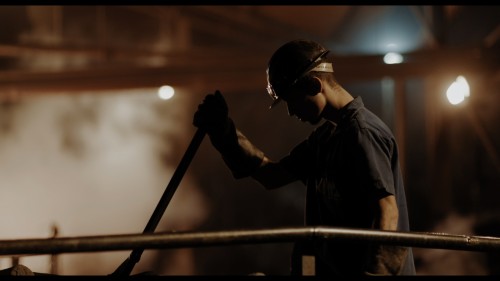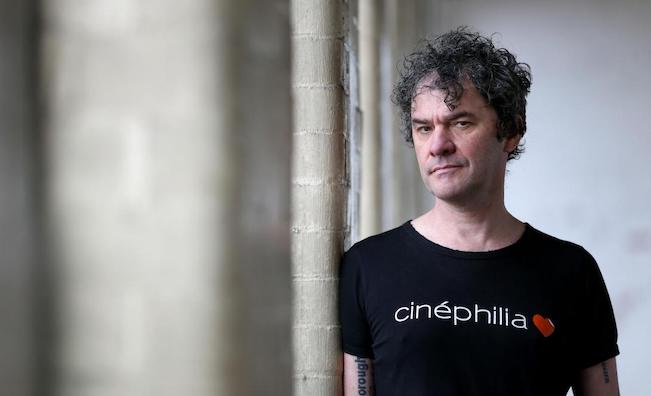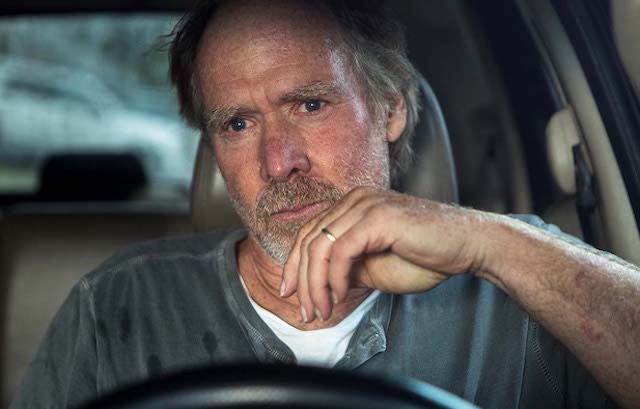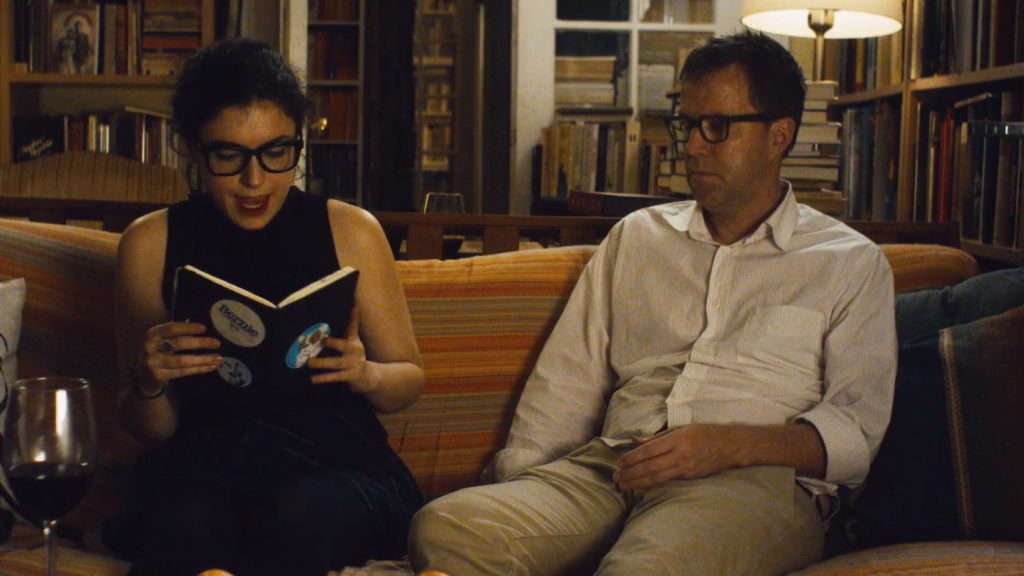The city of Ouro Preto is an historic site known throughout Brazil for its decadence. A gold boom in the 18th century bolstered its initial growth, which led to several famously ornate churches dotting the horizon. During my year on a Fulbright Fellowship in the country, many Brazilian Millennials fondly remembered the city as the site for class trips admiring gilded Baroque architecture. João Dumans and Affonso Uchoa’s “Arábia” steers the Ouro Preto narrative away from the city’s opulence, drawing to the forefront the tough lives of laborers in the state of Minas Gerais.
Dumans and Uchoa begin their film with teenaged Andre’s struggles caring for a sick brother in place of absentee parents. Early in the film, he discovers the journal of laborer Cristiano. When Andre opens the book and the title card appears 20 minutes into the film, we start following Cristiano as he bounces from job to job. The framing device is largely unnecessary; we could have gained just as much insight on Cristiano’s experiences in the working class from his narration without ever introducing the Andre character. Considering the fact that Andre’s one reappearance after the narrative device begins is fleeting, basing the film in Andre’s discovery distracts the viewer more than it gives the viewer a point of entry to Cristiano’s life.
“Arábia” gets appreciably more engaging after the shift in protagonist. Group musical numbers occur from time to time, giving Cristiano and his workaday compatriots the opportunity to express themselves with a simple acoustic guitar and a few deeply felt lyrics. When the protagonist performs a simple song-rap about “the story of the man of the road,” Dumans and Uchoa share this slice of life in a way that helps it transcend its haphazardly strummed chords and strained flow. The directors shoot the performance with no frills; a stationary camera holds a fixed gaze on Cristiano, forcing the viewer to confront head-on the innate humanity of this often-overlooked individual. This film–an extended call to consciousness for the working class–is at its most effective whenever Dumans and Uchoa remember that humanizing its characters is the strongest way to engage viewers in their narrative, much stronger than its failed framing device.
The North American premiere of “Arábia” takes place at Film Society of Lincoln Center on March 18 as part of the New Directors/New Films 2017 festival, which is executed in conjunction with MoMA. An encore screening is planned for March 19 at MoMA.







